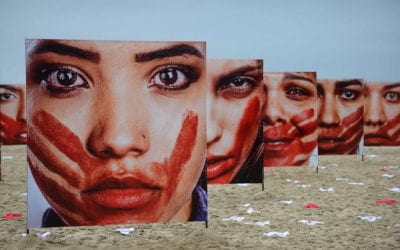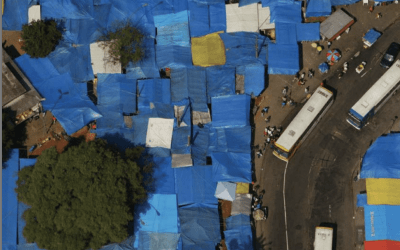Reflecting on Viva Rio
Gente Que Faz a Paz
Gente que faz a paz is a project that takes individuals from all sectors—students, janitors, community leaders, and church members—and teaches them that peace can be taught and implemented. My summer public service internship was actually withViva Rio, a non-governmental non-profit organization (NGO) that actively tries to reduce the cultural, socio-economic, and political gaps between favelas and bairros (neighborhoods). However, since this large NGO is expanding, I became more specifically involved in the Gente que faz a paz project, a sub-division of the NGO that tries to create and inculcate a “culture of peace” in Brazilian society.
Gente que faz a paz (People Who Make Peace) is linked to and supported by Palas Athena, an organization that promotes the just and correct use of citizenship, UNIPAZ Brasilia, a university that teaches Peace Studies and Conflict Resolution, and UNESCO, the mother international organization that encourages international peace and universal respect. Gente que faz a paz is supported by Brazil’s federal government and some private donors, but it is also heavily assisted by foreign governments such as Denmark, England and Germany.
This project also places great emphasis on holistic learning and understanding of all of society’s problems and how the solutions must come about the same way, respectful and conscientious of everyone’s needs. Apart from socio-economic differences being outstanding markers of the need for change, this NGO tries to teach the importance of responsible behavior and reaction to problems in the environment, the political climate and even economic fluctuations. Gente que faz a paz also proudly supports Luta pela paz, a boxing program in the Marea favela that tries to get young kids out of the streets (one of which they have nicknamed the Gaza strip to indicate the level of violence) and into the boxing ring.
Gente que faz a paz actively believes that Brazilian society must disarm its mentality before it can become a more democratic and just society. Therefore, they distribute a plethora of material that deals with how past Nobel Peace Prize winners have handled their societal adversities and how lessons can be learned from all of those non-violent encounters.Gente que faz a paz is a very down-to-earth program that believes in the simple and clear message of peace as a starting point and solution to many of Brazil’s societal problems. These focos (community groups) that get trained in peace studies are expanding not only all over Rio de Janeiro, but also in Bahia, Brasilia, and even São Paulo in the near future. After these peace agents graduate from these five-week seminars they are expected to teach and expand their peaceful techniques throughout their surroundings—the workplace, the classroom, or the streets.
Another positive factor of this program is its staff. Except for the executive director of the program, the other members of this group are all either past volunteers in the umbrella organization, Viva Rio, or current favelados. This background provides the project with a level-headed approach to its goals and aspirations. I also did a lot of learning and reading of sociological works about Brazilian youth and their needs in my spare time and with staff guidance. Gente que faz a paz was a great experience and I hope many others get to emulate it to a certain extent. I truly exhort all to learn more about Brazil and for all those that can, to continue supporting research and internships in this beauty and contradiction of a country.
Spring 2007, Volume VI, Number 3
Odeviz Soto ’07 received a DRCLAS summer internship in Brazil. He hopes to “learn more about the fascinating Brazilian nation.”
Related Articles
Violence Against Women in Brazil: Public Policy and its Implementation in Rural Areas
English + Português
Eight o’clock in the evening—it’s time to gather and watch the national news program in Rio de Janeiro, Brazil.
2022: Uma Encruzilhada Histórica
English + Português
Este segundo turno da eleição 2022 no Brasil é um embate histórico entre visões de mundo. Entre concepções de vida e seus sistemas de valores. Você vai eleger (etimologia: escolher) em que mundo seria concebível viver.
Editor’s Letter: Brazil
Brazil is different. Brazil is huge. Brazil is colorful. Brazil is magic. In Brazil, the people speak Portuguese instead of Spanish.




